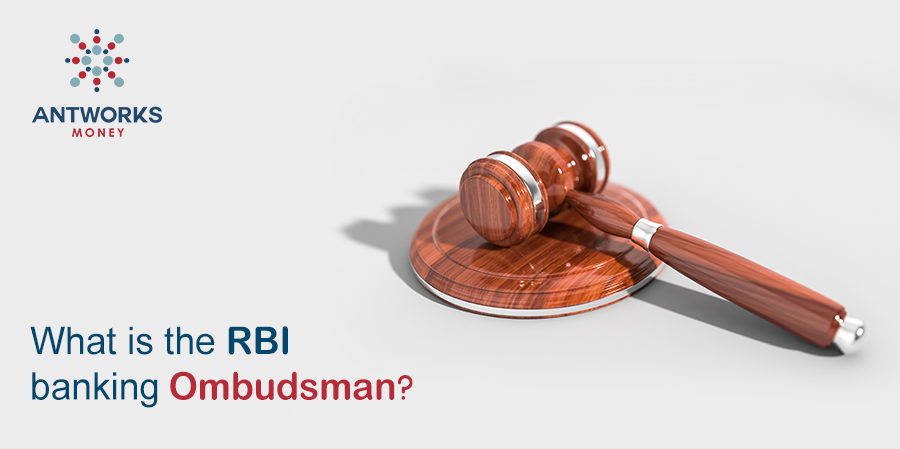What is the RBI Banking Ombudsman?
The Banking Ombudsman Scheme empowers individuals/clients to record their grievances to determine to keep money issues they confront. The Banking Ombudsman Scheme was presented in 2006 with the goal of empowering determination of objections identifying with specific administrations rendered by banks and to encourage the fulfillment or settlement of such protests.
The Banking Ombudsman is a person appointed by the Reserve Bank of India, who has quasi-judicial (tribunal board which has legal powers) authority.
All commercial banks, regional rural banks, co-operative banks, and public sector and nationalized banks are covered under the Ombudsman scheme. In fact, many popular banks like SBI have set up a dedicated system to address online complaints. Presently, there are 15 banking Ombudsmen who have been appointed with offices, most of which are in the state capitals. You can find the contact details and addresses of the offices of the Ombudsman, located across the country here.
Types of complaints
You can approach the RBI Banking Ombudsman to register a complaint under the following categories:
- Non-payment or inordinate delay in the payment or collection of cheques, drafts, bills etc.
- Non-acceptance, without sufficient cause, of small denomination notes tendered for any purpose, and for charging of commission in respect thereof.
- Non-acceptance, without sufficient cause, of coins tendered and for charging of commission in respect thereof.
- Non-payment or delay in payment of inward remittances.
- Failure to issue or delay in issue of drafts, pay orders or bankers’ cheques.
- Non-adherence to prescribed working hours.
- Failure to provide or delay in providing a banking facility (other than loans and advances) promised in writing by a bank or its direct selling agents.
- Delays, non-credit of proceeds to parties’ accounts, non-payment of deposits or non-observance of the Reserve Bank directives, if any, applicable to rate of interest on deposits in any savings, current or other accounts maintained with a bank.
- Complaints from Non-Resident Indians having accounts in India in relation to their remittances from abroad, deposits and other bank-related matters.
- Refusal to open deposit accounts without any valid reason for refusal.
- Levying of charges without adequate prior notice to the customer.
- Non-adherence by the bank or its subsidiaries to the instructions of Reserve Bank on ATM/Debit Card operations or Credit Card operations.
- Non-disbursement or delay in disbursement of pension (to the extent the grievance can be attributed to the action on the part of the bank concerned, but not with regard to its employees).
- Refusal to accept or delay in accepting payment towards taxes, as required by Reserve Bank/Government.
- Refusal to issue or delay in issuing, or failure to service or delay in servicing or redemption of Government securities.
- Forced closure of deposit accounts without due notice or without sufficient reason.
- Refusal to close or delay in closing the accounts.
- Non-adherence to the fair practices code as adopted by the bank or non-adherence to the provisions of the Code of Banks Commitments to Customers issued by Banking Codes and Standards Board of India and as adopted by the bank.
- Non-observance of Reserve Bank guidelines on the engagement of recovery agents by banks.
- Any other matter relating to the violation of the directives issued by the Reserve Bank in relation to banking or other services.
- A customer can also lodge a complaint on the following grounds of deficiency in service with respect to loans and advances.
- Non-observance of Reserve Bank Directives on interest rates.
- Delays in sanction, disbursement or non-observance of prescribed time schedule for disposal of loan applications.
- Non-acceptance of application for loans without furnishing valid reasons to the applicant.
- Non-adherence to the provisions of the fair practices code for lenders as adopted by the bank or Code of Bank’s Commitment to Customers, as the case may be.
- Non-observance of any other direction or instruction of the Reserve Bank as may be specified by the Reserve Bank for this purpose from time to time.
- The Banking Ombudsman may also deal with such other matter as may be specified by the Reserve Bank from time to time.
It should be noted that even Non-Resident Indians holding accounts in Indian banks can register their complaints with the Ombudsman. However, before you register a complaint with the RBI Banking Ombudsman, the following conditions should be met:
- You should have made a written complaint to the concerned bank directly
- This written complaint to the bank should be made as soon as the issue with the bank arises. This is because the letter has to be sent within a year of the issue arising. The Ombudsman will not accept letters sent later than that.
- You need to wait for 30 days (from the date of filing the complaint with the bank). In case you are not satisfied with the bank’s answer, you can register a complaint with the Ombudsman
You can approach the Banking Ombudsman IF
- You have not received a reply from your bank within one month from the date of receipt of the complaint by the bank OR
- The bank has rejected your complaint OR
- You are not satisfied with the bank’s reply
How to file an online complaint with the RBI Banking Ombudsman?
In order to file an online complaint with the RBI Ombudsman, follow these steps:
- Log on to the official website and submit the details of your complaint (https://secweb.rbi.org.in/BO/precompltindex.htm)
- Upload the complaint letter explaining the problem
- Upload any supporting documents to support your complaint
- Insert a copy of the original complaint written to the concerned bank
- Also, insert a copy of the response received from the concerned bank
- All these documents need to be uploaded on the website in pdf or .txt format only
Points to remember
Here are certain important points which you should keep in mind when you decide to file a complaint with the RBI Banking Ombudsman:
- The present complaint cannot be reported to the banking Ombudsman by either party. In other words, you cannot re-register a complaint if you have received an answer already
- The present complaint has not been settled through the Office of the Banking Ombudsman in any previous proceeding
- The subject matter has not already been decided by any forum/court/arbitrator
- The RBI Banking Ombudsman does not charge any fee for resolving customers’ complaints. The best way forward is to settle things amicably with the bank. After all, banks need their customers and will ensure that they resolve issues, especially if there is a written complaint.






